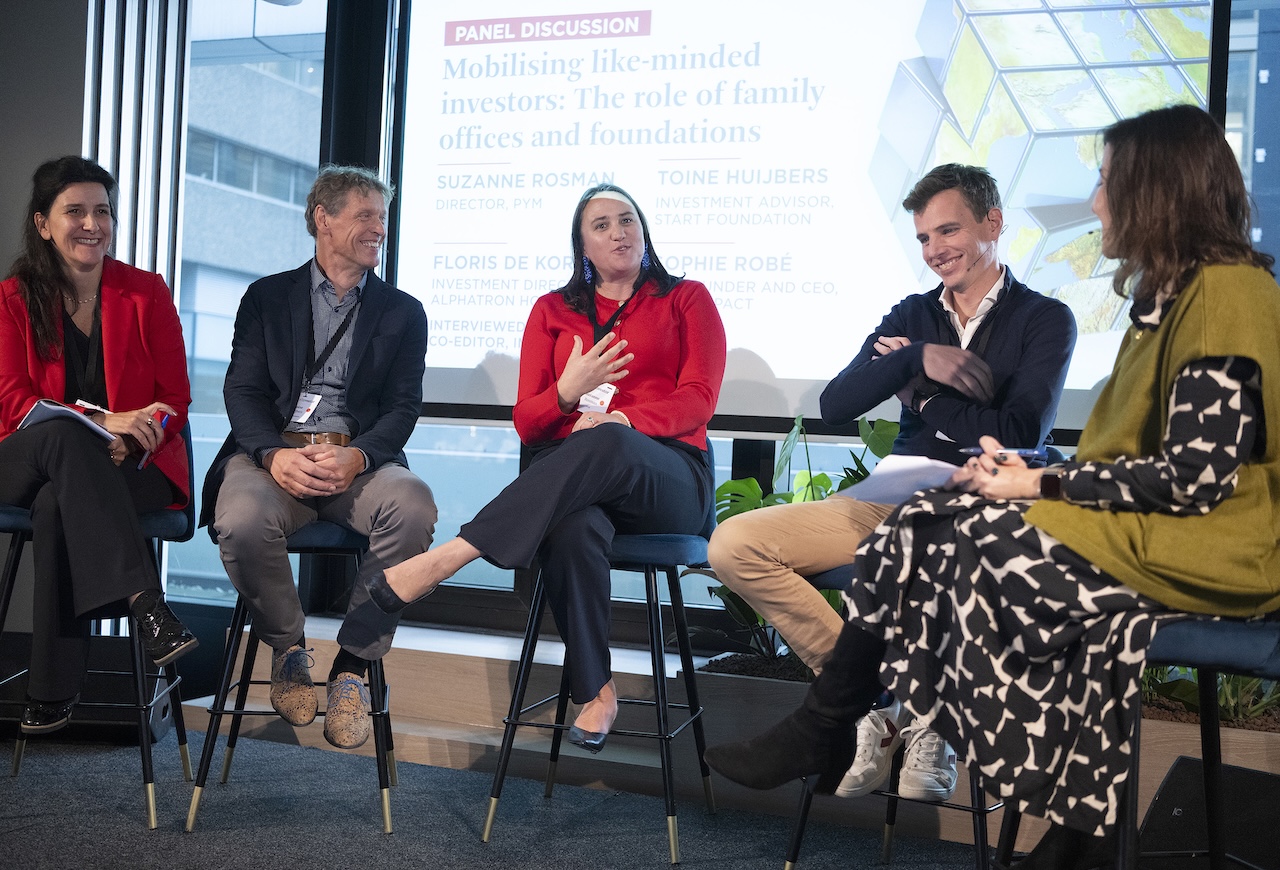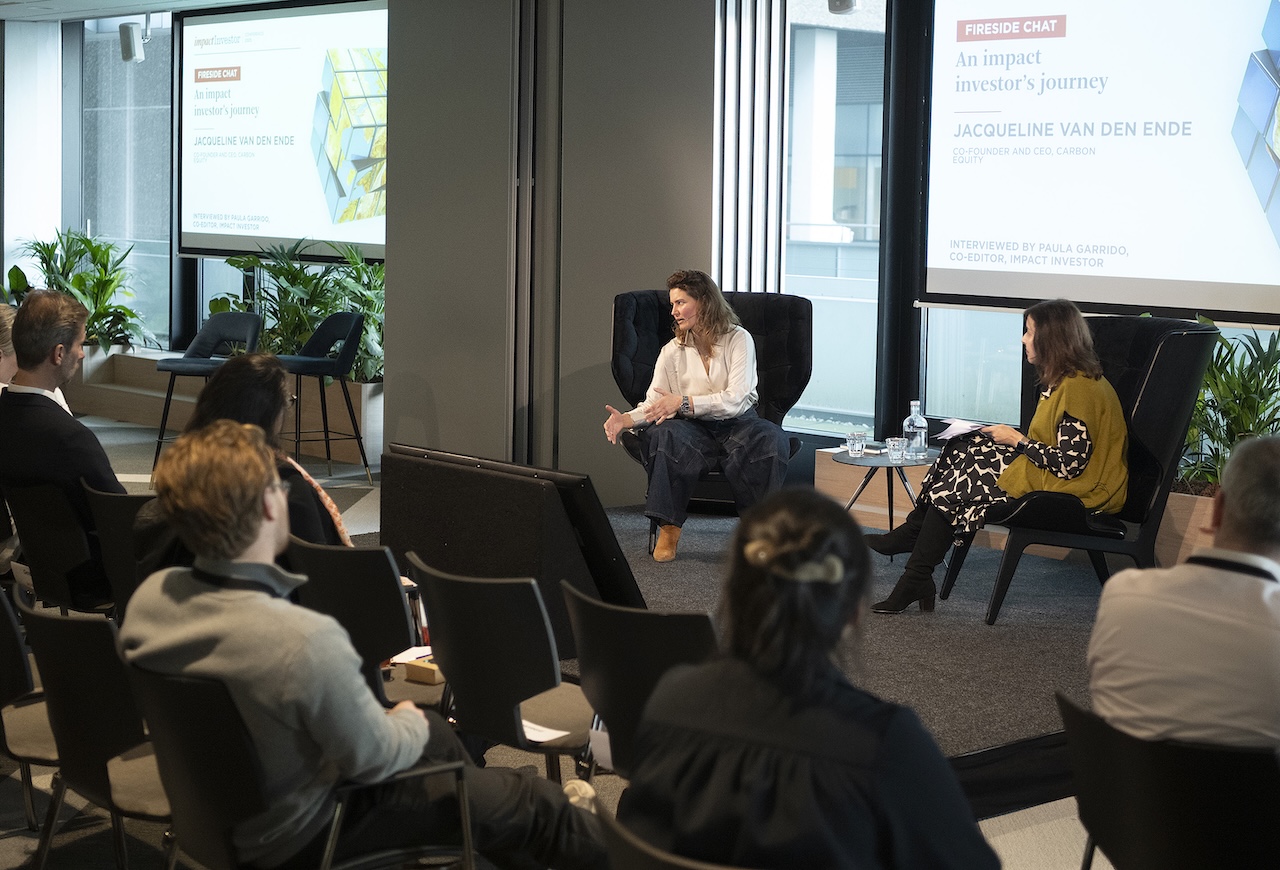Family offices and foundations are working together to achieve greater impact, the Impact Investor Conference 2025 heard.

Europe’s family offices and high-net-worth individuals have become increasingly active in impact investing over recent years, taking advantage of a wider range of suitable vehicles and opportunities for collaboration, speakers at last week’s Impact Investor Conference in The Hague said.
A common thread among participants on a panel debating the role of family offices and foundations in advancing impact investing was the need to avoid being overly cautious when making the first moves into the sector.
Floris de Kort, investment director at Alphatron Holding, a Dutch family-owned technology company and family office with an active impact investment strategy, said a balance needed to be struck between careful planning and experimentation with investing.
“Don’t take years researching and figuring out what you want to do. Just start and then find out what you want and what you are good at – what kind of mandates or industries or sub segments you really like. From there, you can go further. Otherwise, it takes so much time,” he said.
A number of organisations now exist to help private wealth holders, many of which operate in a degree of isolation from their peers, to become more collegiate and provide them with more investment opportunities.
The conference heard from Suzanne Rosman, director of the foundation PYM – which stands for ‘pledge your money’ – on its efforts to inspire private wealth holders in the Benelux region to move towards impact investing.
“We do that by organising events, but mostly through peer-to-peer introductions, where experienced impact investors share their knowledge, their lessons learned and success stories with potential new investors,” she said.
Speakers said it is crucial for wealth holders to build on the experience of others rather than trying to reinvent the wheel in terms of investing.
“It’s really important that you look around at what’s already been done,” said Toine Huijbers, an independent advisor on impact investing, who works with the labour market-focused Start Foundation among others.
Huijbers said the shift towards impact investing at the foundations he worked with was underpinned by the entrepreneurial spirit of the families behind them, who liked the risk-return model it provided that helped to safeguard core capital. This could then be balanced against separate funding pots allocated to higher-risk loans and donations.
Younger generations
Panellists agreed that the direction of investment by family offices was increasingly being influenced by a younger generation with environmental and social concerns, which was open to making higher-risk investments with longer return periods to make impact.
Alphatron’s de Koort, who is the son-in-law of the company’s founder Dick Slingerland, said that was the case at his organisation, where impact investing and collaborative working were part of its strategy. “I’m 40-years old, so our horizon is decades, and we can take more risk. The next generation has a much more impactful mindset,” he said.
Fund of funds
Sophie Robé, co-founder and CEO of FIIND Impact, an Amsterdam-based impact investment consultant and advisor for families, foundations and wealth managers, said those seeking to invest in the developing world, should also tap the expertise of development finance institutions (DFIs) and potentially co-invest with them.
“We actually piggyback on the work done by the DFIs,” she said. “They deal with all the ESG, human right issues and they build capacity. They are not always the best in impact, but that’s what we’re good at. We try to make our investors one of the first investors after the DFI.”
Robé said wealth holders should consider fund-of-funds investments focused on the developing world as an initial step into impact investing, rather than making a potentially high-risk single investments in areas where they have limited expertise.
“Fund of funds is a great way to start an allocation,” she said. “I would rather do one fund-of-fund investment, maybe small, then you learn and then you can build your own programme.”
She said managers of fund of funds increasingly had a good understanding of the impact on the ground of the investments in their portfolios.
‘Climate-obssesed’
During a fireside chat with Impact Investor’s co-editor Paula Garrido, Jacqueline van den Ende, co-founder and CEO of Carbon Equity, an Amsterdam-based investment platform for private market climate investments with around 1,600 investors, said a lot of wealth holders wanted to do more investing for impact, but didn’t know how to start.

She said Carbon Equity helps community building by organising events to bringing investors together with each other and with experts that provide insights into the climate ecosystem.
“Being able to see what other people are doing and sharing deal flow opportunities makes it a lot easier,” she said.
Van den Ende said networking among family offices and other wealth holders is better established in the Netherlands than in some other European countries.
She said the work of Carbon Fix, a Dutch-based family office-driven organisation on whose board she sits, showed what was possible. Carbon Fix provides catalytic financing grants and zero-interest loans for climate-focused companies with potentially highly impactful technology, which is still at the research and development stage and so unattractive for conventional funders. But it also makes collaboration with other family offices central to its strategy.
“They basically ‘fund the unfundables’, and they came up with the COFO initiative – the alliance of ‘climate-obsessed family offices’. I think that’s a great issue, just to pull together people that have an interest and make it easier to get started,” she said.






